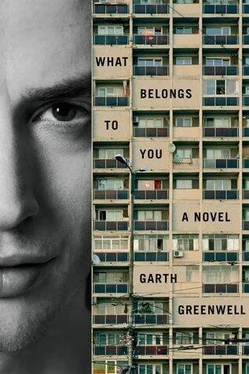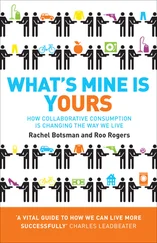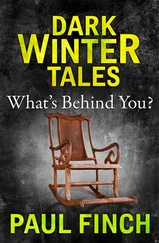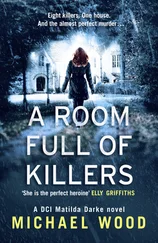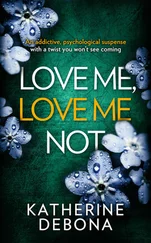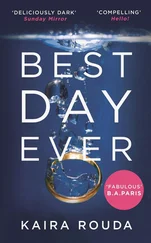I heard someone walking toward me and took my palms from my eyes, which were dazzled by the sudden light. It was the woman from the office, standing by the bench and looking at me with concern, and I was embarrassed, realizing I had made a quiet spectacle of myself. Vsichko nared li e , she asked, is everything all right, is everything in order, rather, red being the word for line or sequence; is everything in its place is what it really means, and I thought to myself when was it ever. But of course I said yes, that short syllable, saying it twice in quick succession, da da , as if to say what a question, how could it be otherwise, and she nodded at this as though she believed it, and then took a seat beside me on the bench. I was surprised by the sudden closeness, flinching a little as if she might mean me harm. She wasn’t a young woman, but there was a sense of vitality about her that made me think of the Bulgarian phrase zryala vuzrast , ripe age, which they use for the period before one is truly old. She was large, but she carried her weight like a sign of health, her frame softened by well-being. It occurred to me that she was the first person I had seen in these institutions who didn’t seem exhausted or exasperated; it’s a talent some people have, being at ease, or seem to have, I know such impressions can be wrong. Ne se pritesnyavai , this woman said, don’t worry, ne e fatalno , it’s not so serious, you’ll do the treatment and get better, soon it will be behind you. She was being kind, simply kind, and I looked at her for a moment before I said thank you, and then, because it was inadequate to what I felt, I said it again. And your friend, she went on, and I noted that she too was addressing me informally; before I had been Vie and gospodinut , the gentleman, but now I was set on a new footing. And this was part of her kindness, so that I felt the other side of that nuance my language doesn’t have, that if it is a loss of dignity it can be a gain of warmth, something that seemed to me now very dear. Your friend, how is he, she asked, has he been to see someone, is he getting treatment? He is, I said, though I realized I wasn’t sure if that was true, I didn’t know where the money I had given him had gone. She nodded, It’s important that he does, she said, make sure he finishes it, otherwise he won’t get better. All right, I said, I will, and she braced her palms against her thighs and stood. Come on, then, she said, let’s go to the office so you can pay and get home.
I was warmed by her kindness as I made my way back to Mladost, the bus nearly empty, the evening rush still hours away. I thought of Mitko on the long ride, feeling sure my decision was the right one, and feeling too that it would be difficult to keep. When I talked to R. that evening, he told me that he had been tested in the morning and received his shot in the afternoon; and I was glad that it seemed to be something he had put behind him as he dressed to go out for dinner with friends. I was feeling better, too. I had eaten already and was sitting and reading in the main room, relaxing for a bit before bed; it had been a long day, I would go to sleep early. I didn’t have any desire to see Mitko, and when I heard the quick bleat of the buzzer I was tempted to ignore it. But he could see my light from the street, he knew I was home, and anyway it would be better to get it over with now, I thought, while I was still sure of what I had to say. I didn’t press the button to release the door or speak to him, but I did turn on the hall lights, which would be acknowledgment enough. I took my time putting on my boots and coat, wrapping a scarf around my neck; it had gotten colder again once the sun went down, but I felt I was wrapping myself up against something else, too, some inner weather against which I had to guard.
Mitko was waiting for me below, his hands jammed into his pockets, his shoulders hunched against the cold. Maybe it was the cold that made him less friendly; he didn’t shake my hand or smile, he hardly greeted me at all. I thought you weren’t coming, he said sullenly, without any of his usual charm, what took you so long. I have friends over, I said, we’re eating dinner, feeling in some way that lying confirmed my resolve, that it was proof of a falseness between us that was irremediable. Mitko shrugged, saying But can we go somewhere else, I don’t feel well, it’s so cold. No, I said, though it was hard to say it, I’m sorry, I don’t have much time, I have to get back to my friends. He made no reply, having expected this, maybe, or maybe the excuse was so evidently false it didn’t deserve an answer. I need to go home, he said, I want to be in Varna, I don’t have anywhere to sleep here, I don’t have any money. He didn’t look at me as he said this, looking instead at the ground, or to the side, as if he were ashamed, and as he spoke he shifted his weight back and forth, scuffing the snow with his shoes. Will you help me, he said, still not looking at me, I need forty leva for the bus, that’s all, forty leva samo , please. He was less sullen than suppliant now, and I hesitated before I answered. Whatever he would actually do with the money I could see he was in need; he was miserable and cold, I was sure he was hungry, and what was it to me, forty leva, now I think I should have given him whatever he wanted. But I didn’t give it to him, I said No, Mitko, I’m finished giving you money, krai , I said, the end. Zashto , he asked, looking up at me sharply, why, repeating it again, zashto? I know you didn’t get the injections, I said, at the clinic today they said you can’t get them in Bulgaria, and I told him that at Tokuda they had said the same, when I called the international hospital to confirm what I had been told. But that’s not true, he said, raising his voice in indignation, I got the shot, I’ll take you to my clinic, he said, they’ll tell you, but I cut him off, saying I didn’t want to go anywhere with him. I’m not a liar, Mitko said, standing still now, don’t call me a liar, I’ve never lied to you. I thought I could see him gathering his forces, trying to put on that face I had seen in Varna so many months before; but it was as though he couldn’t quite manage it, as though it were beyond him now, and with a sadness I couldn’t explain I watched it fade before it had formed. Come on, he said, are be , give me the money and I’ll go, I won’t bother you anymore. But I shook my head. I won’t, I said, speaking gently now, I’m through. I touched his shoulder, not sure what I wanted it to mean, and then I turned my back to him and went inside, where I shuddered almost violently at the sudden warmth.
Even with all I fail to understand, living here — the half-caught phrase or gesture, the assumed meaning I can’t share — here as nowhere else I have the sense at times of the world tidying itself up for consumption, of a meaning delivered like meat already cut, strangeness of a sudden making sense. Not long ago, for instance, after the end of the whole story with Mitko, I found myself on a train from the coast returning to Sofia. I was dreading the journey as I dread all long trips, with their boredom and confinement, especially in the heat of late summer. And I was all the more apprehensive because I was traveling with my mother, her visit a tentative rapprochement after three years of near estrangement. We hadn’t fallen out, exactly, but she was part of that past I had wanted somehow to undo, a past I had felt freer without, and I was uneasy at the thought of her coming here, bringing with her so much of what I had fled. There was the added burden of being a host, heavier since it was my mother’s first trip to Europe, her first trip anywhere at all, and she felt a mixture of eagerness and anxiety I had to satisfy and allay. She had scheduled ten days in Bulgaria, most of which we had spent outside of Sofia; I wanted her to see the more beautiful parts of the country, and we were returning now from Burgas, a seaside city I had long wanted to visit. We had both been charmed by it, and as we joined the crowds walking its long piers and rocky beach, there was a vibrancy in the summer-drunk evenings I had never felt in Sofia. We hadn’t had any of the dramatic scenes I had anticipated, though we were both fatigued, I thought, by the care we took to avoid them. But the trip had not been a failure; I hadn’t, as I had feared, been cruel to her, though for a long time cruelty had been my way of protecting myself from what I saw as her grasping possessiveness, a desire to pry that infringed upon my necessary privacy. She had been careful, after our three years apart, not to impose, and she maintained a lightness of tone that didn’t quite preclude moments of closeness. She spoke of the past in a way she hadn’t before, telling stories of my father, of his early life and of their life together, for the first time speaking of him without rancor, acknowledging a happiness that was brief and had never been reclaimed. I was eager for these stories, though I was cautious, too; I knew that they might draw me back to what I had left, that they had depths I might be lost in.
Читать дальше
